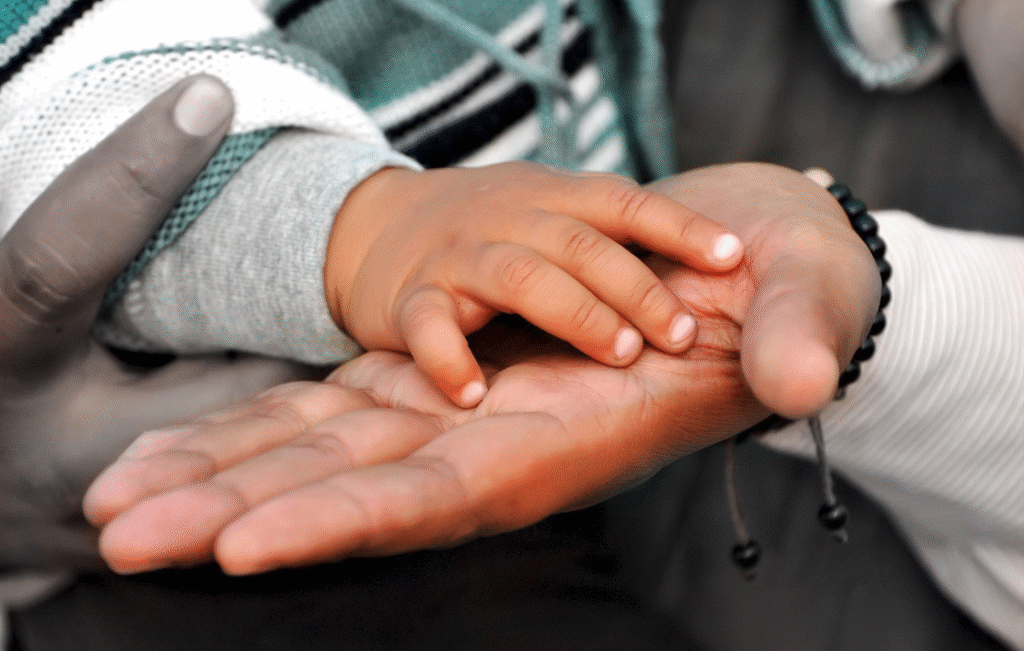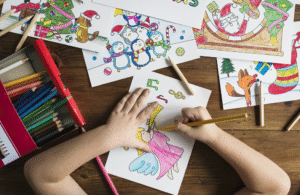In brand new international, upbringing is a deep privilege and a composite obligation. With global uncertainties, digital distraction, social stress and switch of instructional necessities, most effective love is needed to increase emotionally wholesome and a hit children-that is the demand for clarity, adaptability and intention.
The entire guide is adapted to the modern mother and father who wants to raise children who are not only high access, but are designed for emotionally intelligent, socially conscious and real needs. Whether your child is a small, twin or teenager, it provides practical techniques in guide studies, infant development psychology and like parents.
1. Reframe Parenting: From Control to Connection
The foundation of powerful parenting isn’t always control-however connection. Children thrive once they experience visible, heard, and emotionally safe. Strong emotional bonds lay the foundation for accept as true with, problem, independence, and long-time period properly-being.
Action Steps:
- Change “because I said” that invites your child to the process.
- Create a daily time for connection and which involves 10 minutes of uninterrupted attention, creating emotional proximity.
- Practice Sam-Interaction: Help your child handle emotions during your emotional outbreak and exotic modeling during your emotional outbreak.
As noted in the Harvard Center on the Developing Child, stable and responsive relationships are essential for healthy brain development and emotional regulation in children.
2. Prioritize Emotional Intelligence (EQ) Over Academic Pressure
Today, youngsters are exquisite educational opposition, however emotional flexibility and social skills are higher prophecies of long -time period achievement. A infant who is aware of the way to take care of stress, take care of emotions and create a dating will thrive in any surroundings.
Teach Emotional Literacy:
- Encourage your child to name emotion: “Do you feel overwhelmed or disappointed?”
- Create a “emotion corner” or emotional checkboard at home.
- Cover all emotions and run with difficult people running to fix them.
Help your child understand that emotions are not problems – they are worth feeling the message and treating.
3. Set Boundaries Without Harshness: The Power of Calm Discipline
Discipline is not approximately punishment it is about teaching. A properly disciplined infant knows limitations and outcomes, but additionally learns from mistakes that create self control and responsibility.
Discipline Strategies:
- Use herbal effects instead of dangers: “If you do not lubricate, your toys can also wander.”
- Avoid noticing behavior as an identity (“you are lazy” vs “you do not make your satisfactory today”).
- The rules continuously follow the rules, although it usually explains why the limit exists.
The discipline brought with sympathy teaches children to take responsibility with insult or fear.

4. Teach Digital Intelligence: Prepare Children for the Online World
Children today are digital natives. They are born into a world of smartphones, social media, online gaming, and instant content. Without proper guidance, these tools can damage focus, self-worth, and mental health.
What Digital-Aware Parents Should Do:
- Start age-appropriate tech conversations early-not just rules, but why they exist.
- Make a tech-luz zone inside the domestic: a unit in the bedroom, at a dinner table or at some point of the family’s time.
- Discuss cyberbuling, online recognition and important issues. Teach them how to distinguish between real vs. Material materials.
Learn more than this reliable guide about increasing virtual residents of general knowledge media.
5. Build Resilience Through Everyday Struggles
Flexible kids are not born – they may be created thru publicity to demanding situations, supported with the aid of responsible adults who assist them get better. Casting kids with all drawback will increase emotional development.
Make endurance and adaptableness:
- Let them fail. Each mistake is an opportunity to learn.
- Value tries at the end result: “I am proud of ways hard you’ve got worked,” no longer simply “you!”
- Instead of responding straight away, encouraging issues.
Creating a culture of development in your private home, not perfection.
6. Create Routines That Offer Predictability and Safety
Routines reduce anxiety and create structure. When children know what to expect, they feel secure and are better able to focus, cooperate, and regulate their behavior.
Build Predictable Rhythms:
- Morning and bedtime routines should be sacred and consistent.
- Use charts for young kids and planners for older ones to build independence.
- nvolve youngsters in making workout routines—it offers them a experience of control and possession.
Structure builds stability. Predictability builds agree with.
7. Practice Self-Care So You Can Parent From Strength
You can’t pour from an empty cup. A burned-out, beaten determine can’t figure successfully. Make space to recharge, alter your emotions, and version stability.
Parent Self-Care Ideas:
- Take micro-breaks for the duration of the day to reset.
- Connect with unique mother and father—community guide reduces isolation.
- Set obstacles for art work, tech, and noise to your non-public lifestyles.
Remember: Your toddler needs a gift, emotionally available decide—no longer a fantastic one.
Conclusion: Parenting Is a Journey of Growth for You and Your Child
There is not any one size avenue map for absolutely everyone for parenthood. But with the right mentality, emotional recognition and realistic equipment, you may raise youngsters who are not best obedient – however are able to handle self -confidence, kind, curious and complexities in life.
The aim of parenthood isn’t always perfection – that is development. It’s now not just about making ready your infant for the destiny. It’s about modern-day, studying, developing and going with them.
Faqs
1. What does it mean to raise a “future-ready” child?
A infant who is ready for a destiny is person who can grow in a hastily changing international of armed with favorable, emotionally smart and vital questioning, collaborative and digital capabilities. Future emergency preparedness isn’t just about instructional success-this is approximately flexibility to navigate the individual individual, problem solving abilities and uncertainty with confidence.
2. Why is emotional intelligence more important than ever today?
In a world full of distraction, stress and rapid change, emotional intelligence (EQ) helps children identify and cope with their feelings, sympathize with others, resolve conflicts and make thoughtful decisions. Research suggests that high EQ often leads to better mental health, strong relationships and long -term success individual and professional.
3. How can I teach resilience to my child without overwhelming them?
Resilience is developed by allowing children to face challenges with support—not by shielding them from every difficulty. Encourage problem-solving, model calm responses to stress, validate their emotions, and praise effort over results. Let them learn from failure and remind them that setbacks are part of growth, not signs of defeat.
4. What daily habits support emotional and mental strength in kids?
Large behavior includes:
- Regular family check -in on feelings
- Frequent practice and obstacles Installation
- Encourage gratitude and ironling
- Display time
- Open communication and active listening
- These small, continuous behavior create emotional security and self -insurance for years.
5. How can I balance preparing my child for the future while letting them enjoy childhood?
Attack a balance by playing with curiosity, imagination and life skills and values. Let them find out your passion, ask big questions and learn through fun. Support their dreams without pressure on perfection. The goal is not to hurry them it is to equip them with emotional units so that they grow with happiness and purpose.



